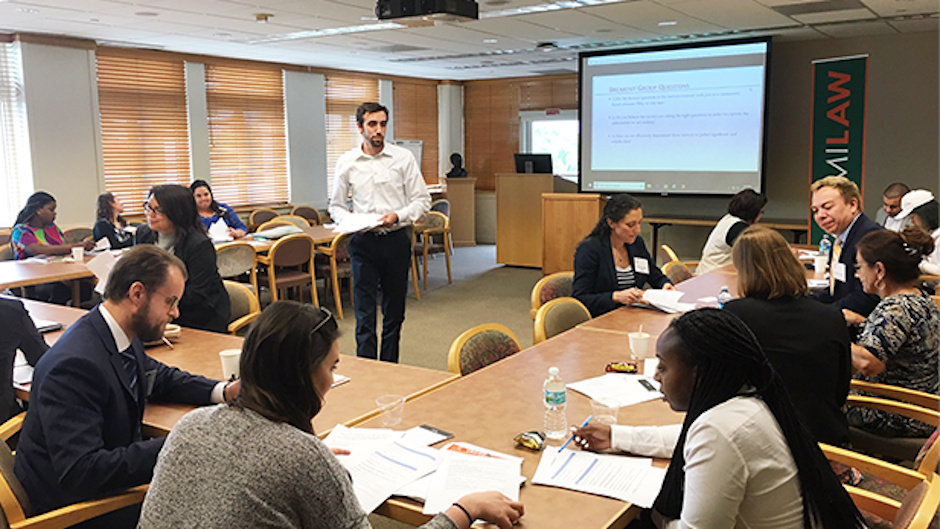Written by: CAITLYN BURNITIS, DAMIAN GONZALEZ, AND SIMONE SMITH
Without question, domestic violence and sexual assault (DVSA) are pervasive in the United States, and police officers are often on the front lines of responding to this epidemic. Domestic and sexual violence calls for service comprise the majority of 911 calls to many police departments and these 911 calls are among the most dangerous assignments for responding officers. Yet improving the response to gender violence is often not a top law enforcement priority.
A 2015 survey of victims who called the National Domestic Violence Hotline, as well as a 2015 national survey of victim advocates and professionals, demonstrated significant gaps in our nation’s criminal justice system response to domestic and sexual violence victims, including a strong reluctance on the part of many victims to turn to law enforcement for help, and significant barriers when victims do seek law enforcement assistance. This is especially true for victims from marginalized communities, such as women of color, immigrants, LGBTQ+ individuals, the homeless, and the disabled.
Last month, Miami Law's Human Rights Clinic convened a roundtable of community-based advocates to explore these themes at the local level, in Miami-Dade County. We described our new project, the COURAGE in Policing Project, which focuses on enhancing law enforcement responses to domestic violence and sexual assault and addressing gender bias in policing—particularly for the most marginalized survivors. A core focus of the Roundtable was the U.S. Department of Justice’s groundbreaking 2015 Guidance on Identifying and Preventing Gender Bias in Law Enforcement Response to Sexual Assault and Domestic Violence, which was developed in the wake our Clinic’s victory in the case of Jessica Lenahan v. United States. “How could the Guidance best be implemented in Miami-Dade County?” we asked participants.
Roundtable participants were presented with a first look at a set of soon-to-be-released surveys developed by students, faculty, and local and national partners on the COURAGE project. The two surveys—one for advocates, and one for survivors—are modeled on the national surveys described above and assess the law enforcement response to domestic violence and sexual assault in South Florida. The surveys will be distributed to advocates, service providers, and others in South Florida whose primary work focuses on domestic violence, sexual assault, racial justice, homelessness, immigrants’ rights, LGBTQ+ equality, disability rights, and/or other advocacy on behalf of underserved populations. The information collected from the surveys, we hope, will be useful for efforts to enhance the law enforcement response to domestic violence, sexual assault, and all forms of gender violence, and that this information will help to enhance access to safety and justice for all survivors.
Roundtable participants provided feedback and suggestions for the surveys and the COURAGE project generally. One participant emphasized the importance of ensuring that the surveys designed for survivors would take a trauma-informed approach and would only be administered to those who were ready to discuss their story. Another participant expressed concern about asking questions that could intimidate immigrant survivors, in light of the climate of fear for undocumented immigrants in our community. Our team is in the process of updating the surveys in light of the excellent feedback we received, and plan to distribute the surveys in the coming months.
The roundtable was followed by a screening of the documentary Home Truth, as well as a discussion panel that included students and faculty from the Human Rights Clinic, the filmmaker, and the subject of the documentary, domestic violence survivor and activist Jessica Lenahan.
As the first of many roundtables, the COURAGE project hopes to foster an ongoing dialogue between survivors of domestic violence and sexual assault, the advocates who represent them, and the police on how to enhance law enforcement response to domestic violence and sexual assault.
As the #MeToo movement strengthens in the U.S., the COURAGE project aims to effectuate a coordinated and systematic response to gender violence that meets the needs of our own community in Miami. By bridging the gap between marginalized communities and law enforcement officials, the Human Rights Clinic hopes to use the COURAGE project as a model that can be implemented in cities nationwide.
Burnitis, Gonzalez, and Smith are second-year law students in the Human Rights Clinic.

